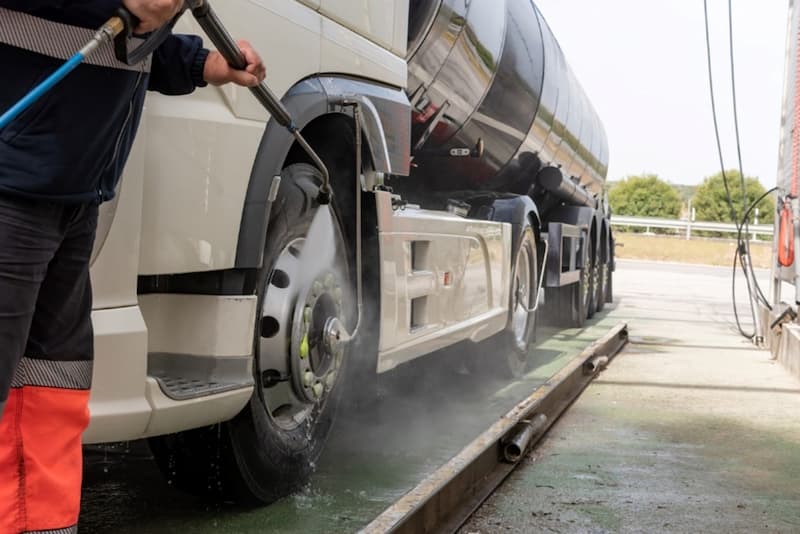Summer Fleet Management Strategies
The summer months bring their challenges to the nation’s commercial fleets, but with careful planning and adaptive fleet management, any fleet will easily compensate for the changing season and maintain high productivity. Read our selection of helpful strategies designed to assist with your fleet and fuel management over the summer months.
Why Is Adaptive Fleet Management Better?
When you’ve found the perfect balance between your asset expenses with effective fleet and fuel management systems, it often feels like your goal should be to do everything you can to maintain the status quo, but this will work against you as we enter new seasons.
Staying Informed
The most efficient fleet management must be flexible; it must be reviewed at regular intervals, at least every quarter, to guarantee your system is operating effectively. The changing fuel costs this year show how businesses can’t remain static with their fuel expenses, otherwise, they’ll be subjected to significantly increased costs. Also, industry trends will change often. For example, the UK fleet’s decarbonisation initiatives that fleets are adopting have presented new regulations and possibilities.
Improved Optimisation Despite Seasonal Impact
Even if the seasons never change, this is a beneficial practice due to the sector’s shifting costs and the need to adapt to the current seasonal effects. During the summer months, the increased heat negatively impacts your assets and drivers in many small ways that all accumulate into one significant problem: increased costs.
How Does Summer Challenges Increase Fleet Costs?
The largest contributor to increased fuel use in the summer months is the air conditioning unit. An AC in a heatwave will often use 25% more fuel than a deactivated one. This is because AC units in HGVs are powered by the engine, which needs to work harder to operate and, as a result, use more fuel.
Strategies to Enhance Fuel Efficiency for Commercial Fleets in Summer
Maintaining optimal fuel efficiency is an ongoing concern for commercial fleet managers, particularly during the sweltering summer months. As temperatures rise, so does the increased fuel consumption among drivers. To address this challenge, fleet managers must deploy effective strategies to curtail fuel usage without compromising operational efficiency. In this discourse, we explore practical tips tailored to reduce fuel consumption among commercial fleet drivers.
Choice of Cooling Methods
Your drivers have two options for dealing with the heat: air conditioning or opening the vehicle’s windows. While both methods offer relief from the heat, they also impact fuel economy. Fleet managers must discern the appropriate circumstances for each cooling method to optimise fuel efficiency.
At lower speeds, opening windows has a negligible impact on fuel efficiency. However, on motorways, the increased wind resistance caused by open windows leads to greater fuel consumption compared to using air conditioning. As a result, while driving on motorways, it is advisable to rely on air conditioning, as it consumes less fuel than the additional drag induced by open windows.
Before arriving at the motorway and going at slower speeds, drivers should drive with windows open to allow hot air to dissipate from the cabin. This pre-cooling method reduces the strain on the air conditioning system and expedites the cooling process upon activation.
Optimal Use of Air Conditioning
Avoiding the use of AC units while idling preserves fuel efficiency but is a challenge for fleet managers during summer as the temptation to ‘pre-cool’ your cab only gets higher during a hot summer. Educate your drivers that, instead, they should activate the cooling system after starting their journey. Air conditioners operate more efficiently when the vehicle is in motion, cooling the cabin faster and minimising fuel consumption. Prolonged idling with these running increases fuel usage, making it important for drivers to use it only when appropriate.
Regular Maintenance Checks on Cooling Systems
Efficient operation of the air conditioning system for your driver and engine is integral to maximising fuel economy during warm weather. Trained members of your fleet should conduct regular maintenance checks to ensure the system operates smoothly. This includes checking coolant levels before committing the vehicle to a long-distance job and confirming the adequate coolant levels in the vehicle’s radiator to prevent overheating. If your vehicle’s gauge is dropping unusually fast, this could be a sign of a mechanical problem. Check the associated hoses, the radiator and the cap to see if there is any resulting damage from long-term use. Once repaired and refilled with coolant, your engine will use less fuel to carry out normal operations.
Other Fleet Areas to Check in Summer
Besides the cooling systems, there are other areas to monitor to maintain a high level of fuel efficiency in your feet during summer.
Preventative Maintenance
We’ve already discussed seasonal vehicle maintenance by addressing the cooling systems. Still, you should also review the state of your fleet’s tyres in extreme heat as well as trailer connection points for any damage from long-term heat exposure. These activities should be made compulsory during summer heatwaves to create a reliable preventative maintenance program that guarantees your assets function when you need them and will not end up costing you money from lost work.
Invest in Onsite Fuel Systems
Another way commercial fleets can improve fuel efficiency is by investing in fuel monitoring and management systems that enable managers to create their personnel fuel stations at their base of operations. In addition, onsite fuel storage and dispensing provide a significant number of advantages. For example, investing in one of our systems will enable your fleet to avoid the fluctuating fuel costs the public has to deal with and embrace the cheaper costs associated with wholesale fuel prices.
Complete Fuel Management Packages Available at Fueltek
At Fueltek, we pride ourselves on providing effective advice for seasonal fleet management and creating tailored fuel management systems designed to fulfil the needs of commercial fleets across the country. Contact us to explore how our options will benefit your business’s fuel expenses this summer.











